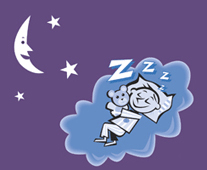Sleep disorders extend far beyond well-known insomnia and sleep apnea.
In fact, there are nearly one hundred different sleep disorders, and not all are easily noticed. Sleep disorders include obstructive or bothersome sleep, unusual sleep activities, medical or psychiatric conditions, and more. Read on to learn four common myths of sleep and sleep disorders.
The older you get, the less sleep you need While it’s true that children and teenagers need plenty of sleep to adequately develop and grow, adults of all ages should get the same amount of sleep.
Whether you’re twenty-five or sixty-five, you should be getting between seven and nine hours of sleep a night.
Health problems do not affect sleep On the contrary, there is a very strong relationship between health problems like depression and diabetes, and adequate sleep. Research has proven suffering from one or more health conditions can have a negative impact on the quality or quantity of sleep, and may even contribute to sleep disorders like sleep apnea or insomnia.
Sleeping means your brain is at rest Your brain is actually very active during sleep; it is mainly your body that is at rest. If your brain “slept” while your body did, not only would you cease to dream, but your basic bodily functions, such as breathing and blood circulation, would stop as well.
Insomnia means you can’t fall asleep Many joke about having insomnia when they have difficulty falling asleep.
In fact, insomnia is a much more complicated disorder, and not only affects falling asleep, but also staying asleep, constant waking, and rising in the morning still feeling tired. If you believe you have insomnia, visit a sleep center for a diagnosis and treatment.
To learn more about the myths and facts of sleep, contact Zeeba Sleep Center.
We are one of the only accredited sleep disorder facilities in Las Vegas, and offer a comprehensive patient care program for the evaluation, diagnosis, treatment, and follow-up of patients with sleep disorders.
Call us today at (702) 242-1562.

